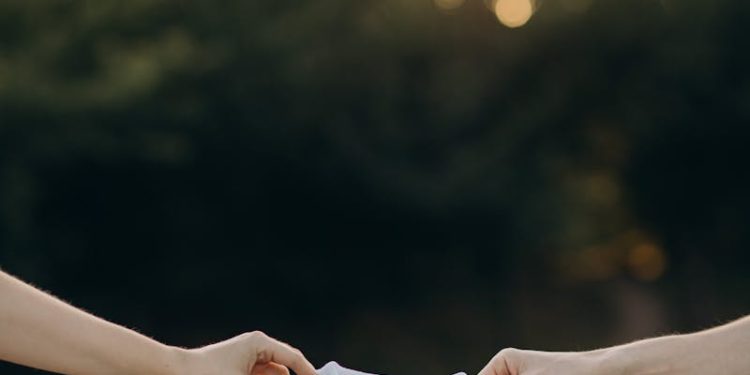The arrival of a new baby is an exciting time, but it can also be overwhelming—especially when it comes to figuring out what you actually need for your little one. With countless products on the market and endless advice from well-meaning friends and family, it’s easy to get caught up in the consumer frenzy. However, taking a minimalist approach to parenting can help you focus on what truly matters, reduce stress, and create a more peaceful environment for both you and your baby. By simplifying and sticking to the essentials, you can save money, minimize clutter, and prioritize quality over quantity. Here, we explore the essentials you really need for your baby, helping you embrace a more minimalist parenting style.
1. A Safe and Comfortable Place to Sleep
One of the most important items for your baby is a safe and comfortable place to sleep. Whether you choose a crib, bassinet, or co-sleeper, ensure that it meets current safety standards and provides a secure sleeping environment. A crib with a firm mattress and fitted sheet is often all you need for your baby’s sleep setup—avoid unnecessary extras like crib bumpers, pillows, or stuffed animals, as they can pose a safety risk.
If you prefer a more portable option, a bassinet or travel crib can be a great choice, especially in the early months. The key is to create a safe sleep environment that works for your family and allows your baby to rest comfortably, without the need for additional accessories that can lead to clutter.
2. Feeding Essentials
Feeding your baby is one of the most important aspects of caring for them, and the items you need will depend on your chosen feeding method. If you’re breastfeeding, a comfortable nursing pillow and a few nursing bras or tops are often all you need to get started. While some parents find a breast pump helpful for building a stash of milk, it’s not always a necessity for everyone—consider your needs and lifestyle before making a purchase.
For bottle-feeding parents, a few bottles, nipples, and a formula of your choice are the essentials. You don’t need an overwhelming number of bottles—having four to six is usually enough to get you through the day. Consider opting for glass bottles or other eco-friendly options that are easy to clean and safe for your baby.
3. Diapering Supplies
Diapering is a non-negotiable part of parenting a newborn, but it doesn’t have to be complicated. Whether you choose disposable or cloth diapers, stick to the basics: diapers, wipes, and a changing pad. A simple portable changing pad can be used at home or on the go, eliminating the need for a bulky changing table.
If you’re using cloth diapers, a few dozen diapers, inserts, and a wet bag for storage are all you need. For disposable diapers, be mindful of your baby’s growth, and avoid buying too many in one size, as babies grow quickly. Baby wipes are essential for diaper changes, but they can also be used for cleaning hands and other messes.
4. Clothing: Less Is More
When it comes to baby clothing, it’s easy to get carried away with adorable outfits, but the reality is that your baby only needs a few essentials. Babies grow incredibly fast, and they often outgrow clothing before they have a chance to wear everything. Stick to simple, comfortable clothing that makes diaper changes easy—think onesies, sleepers, and a few pairs of socks.
Aim for a mix of short-sleeved and long-sleeved onesies, a few sleepers or rompers, and a couple of hats to protect your baby from the sun or cold. Depending on the season, you may need a light jacket or a warm blanket. By keeping your baby’s wardrobe minimal, you reduce laundry, avoid clutter, and make dressing your baby a stress-free experience.
5. A Car Seat for Safety
A car seat is an essential item if you plan to travel by car with your baby. Choose an infant car seat that meets current safety standards and is easy to install. Many parents opt for a car seat that can be attached to a stroller for convenience, but it’s not always necessary if you prefer to carry your baby in a sling or carrier.
Make sure your car seat is installed correctly—many fire stations or car seat inspection stations offer free car seat checks to ensure your baby is safe while traveling. This is one item where quality is paramount, so take the time to choose a car seat that works for your family and offers the best protection for your little one.
6. Baby Carrier or Sling
A baby carrier or sling can be incredibly useful for keeping your baby close while allowing you to be hands-free. Whether you’re running errands, going for a walk, or just trying to get things done around the house, a carrier provides comfort for both you and your baby. Choose a carrier that is ergonomic and provides proper support for your baby’s hips and spine.
A simple wrap, ring sling, or structured carrier can be a great addition to your baby essentials, but you only need one—avoid buying multiple carriers that serve the same purpose. The goal is to find one that is comfortable for both you and your baby, making it easy to incorporate into your daily routine.
7. Bathing Basics
Bath time can be a special bonding experience, and you don’t need a lot of gear to make it enjoyable. A small plastic baby bathtub or a bath support can be helpful in the early months, but some parents find that washing their baby in the sink works just as well.
All you need for bath time are a few soft washcloths, gentle baby soap, and a towel to wrap your baby in afterward. Many baby bath products contain unnecessary chemicals, so consider opting for a natural, gentle soap that’s safe for your baby’s sensitive skin.
8. Keep Toys and Entertainment Simple
It can be tempting to fill your home with toys to keep your baby entertained, but in reality, your newborn doesn’t need many toys in the early months. Babies are most interested in interacting with their parents and exploring the world around them. A few simple toys, such as a rattle, a soft stuffed animal, or a baby-safe mirror, are all you need to engage your baby.
As your baby grows, you can introduce more toys that encourage sensory exploration, such as soft blocks or stacking rings. By keeping toys simple and age-appropriate, you avoid clutter and help your baby focus on exploring and learning from their environment.













